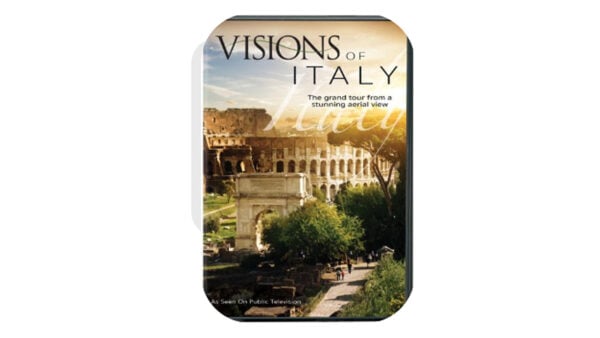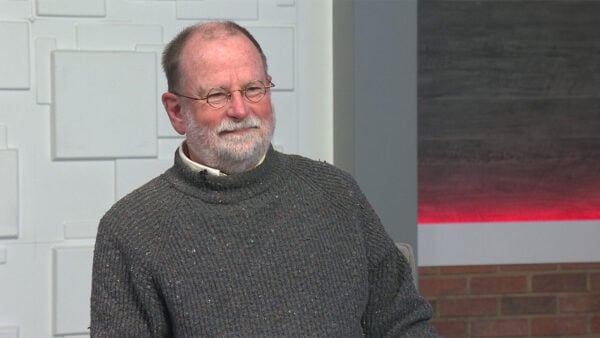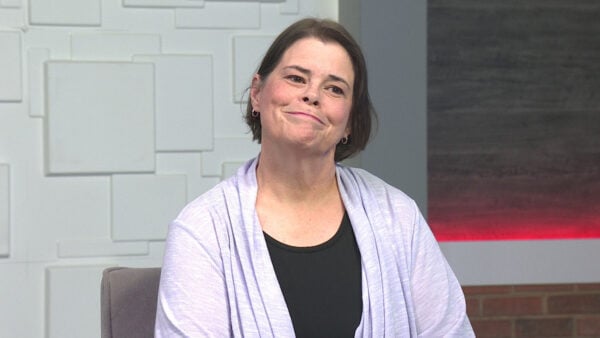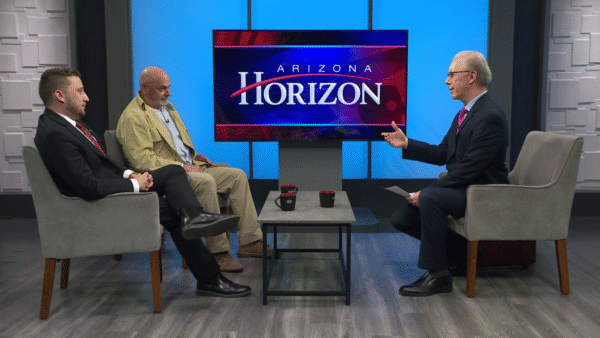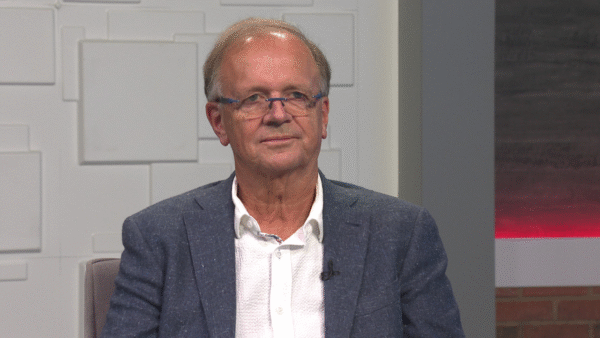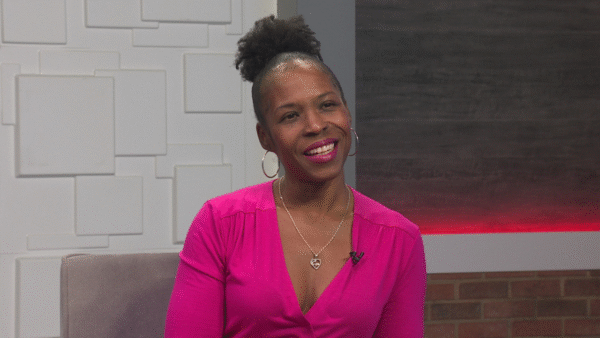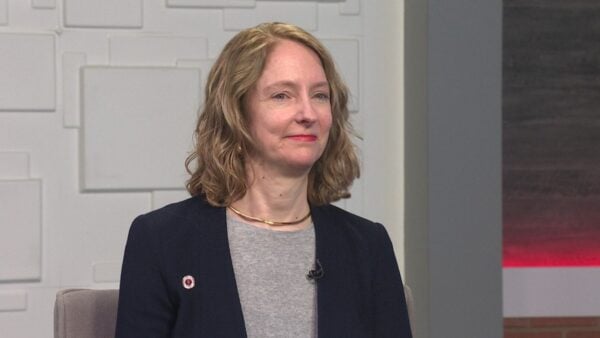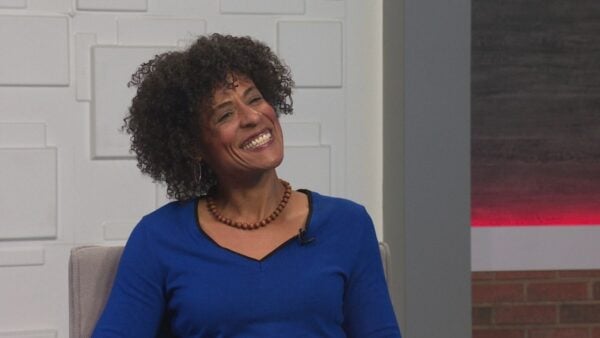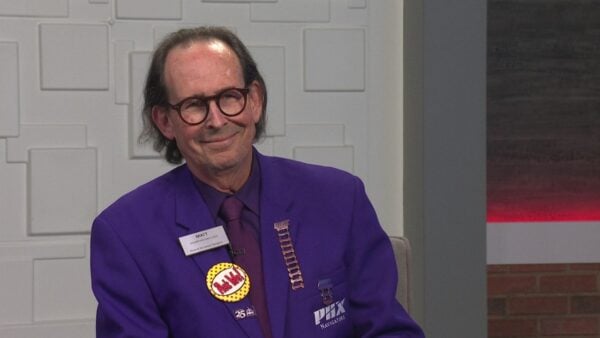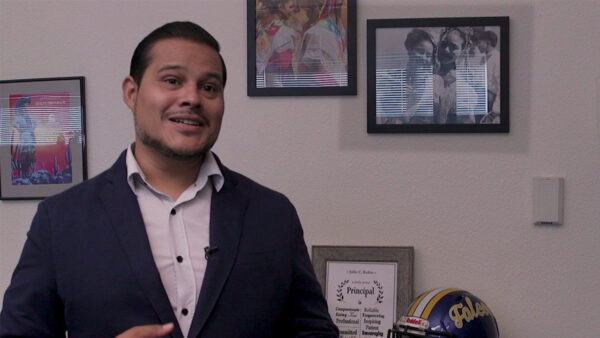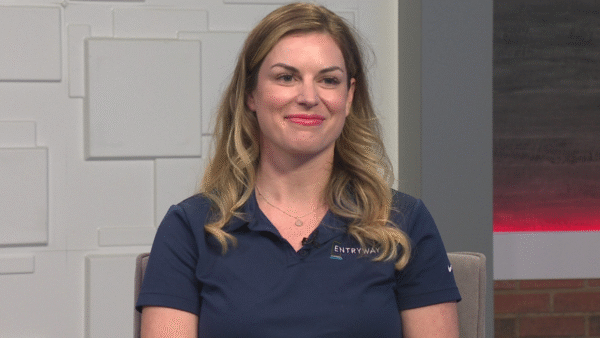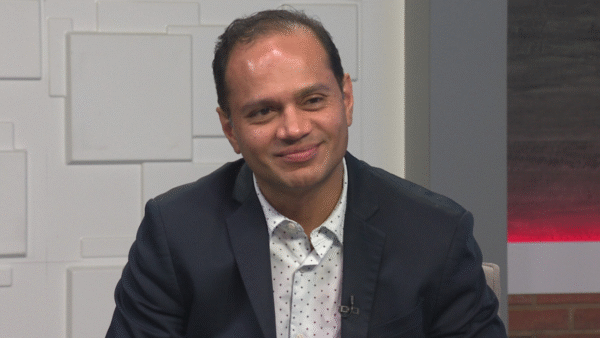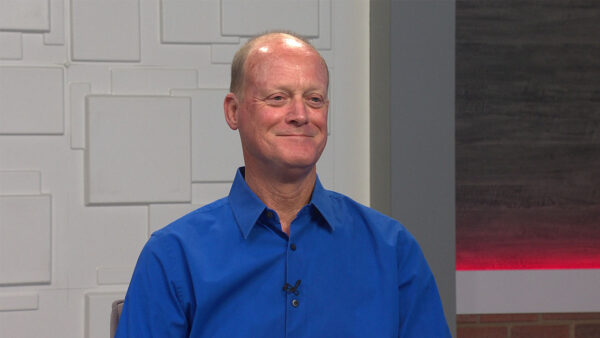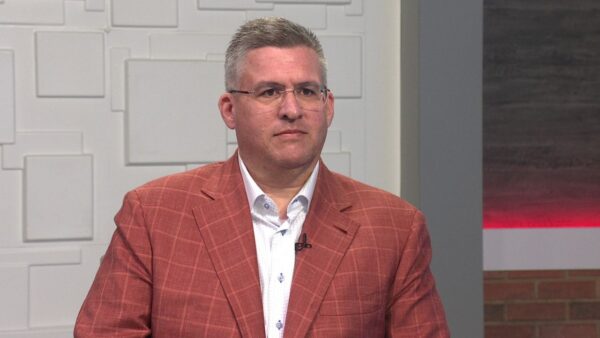Washington Post op-ed columnist and author E.J. Dionne is out with a new work on conservatism in America. Dionne will discuss his new book: “Why the Right Went Wrong: Conservativism–from Goldwater to the Tea Party and Beyond.”
Ted Simons: "Washington Post" political columnist and author E.J. Dionne, Jr., is out with a new big on contemporary political conservatism. We welcome E.J. Dionne to "Arizona Horizon." Good to have you here.
E.J. Dionne Jr.: It's a joy to be here. In the home of John Mccain and Barry Goldwater. you can't get closer to my book than this.
Ted Simons: Before we get too deep in the weeds here define political conservatism.
E.J. Dionne Jr.: It's really good that you ask that question. I think one of the problems I deal with in the book in a lot of ways what should be conservatism has become a form of radicalism or reaction. Because in my view what political conservatism is about is being concerned about preserving a way of life which sometimes requires a certain amount of change. Edmund Burke was the great conservative. He said the statesman should have a disposition to preserve and a desire to improve. I think what often has happened to American conservatism is it's lost that desire to improve part. In my book I sort of set up Dwight Eisenhower as a model conservative and the kind of conservative that the current movement could really use. Many conservatives don't even think of Ike as conservative but he was willing to accept certain changes from the new deal. He thought there was a role for government. He did the interstate highway system. Student loans that helped millions including me go to college. But he was also a budget balancer, sympathetic to religion. He obviously their strengthened America and the world. And I think when Barry Goldwater, whom I respect hugely as a human being, but his campaign in 1964 was very radical.
Ted Simons: I want to stop you right there because you write in the book that the Republican party made what you call a wrong turn with Goldwater. Was that really the fork in the road?
E.J. Dionne Jr.: It was. In some ways Goldwater himself later in life kind of felt that himself. I have the story in the book that when Bob Dole needed Goldwater's endorsement in 1996 to show that he was a real conservative, Dole, bless his soul, could never stay on message. He said, Barry, we're the liberals now, aren't we? Goldwater said, yeah, I guess we are. But in 1964 he was really radical. He really wanted to cut Social Security, a long list of things. I think with Goldwater the moderates in the party there was first a purge of the liberals, then a purge of the moderate politicians and over time moderates particularly in the north and northeast and the west started leaving the party. The center of gravity shifted not so much to the Southwest but to the Deep South creating a very different kind of Republican party. You're seeing it today with the trump --
Ted Simons: I want to get to him in a second too. You're right. How every Republican leader except for Reagan, every Republican president, whether it's George Herbert Walker bush, George W. Bush -- candidates running for office, they have all been branded turncoats because it sound like what you're saying is the far right has promised a lot. They failed to deliver once they get in office.
E.J. Dionne Jr.: The first sentence of the book is the history of American conservatism is a story of disappointment and betrayal. I argue that conservative politicians since Goldwater have had to make a series of promises they couldn't keep, to reduce the size of government, roll back the cultural changes of the '60s, and of late change in the ethnic makeup the country back to where it was in the 1940s. If you just take the size of government, government is almost the same as when Reagan left office as when he took office. But yet you have the base that's very angry, which explains why they vote for candidates like trump. Candidates who try some version of moderation are pushed back. A good example, I talk about John McCain winning the Republican nomination in 2008 against the wishes of the far right of the party. But when it came time for the convention McCain couldn't get his first choices for vice president because of the power of conservatives in the party. It was only after he couldn't get either Joseph Lieberman or the governor of Pennsylvania, Tom Ridge, that he turned to Sarah Palin. So the effort to change the party is very because of the nature of the primary electorate.
Ted Simons: I still think it's fascinating this diagram to where I'm going to be far right, I'm going to promise you I'm going to cut, cut, not move. I get into office I realize government is a huge beast and I can't deliver and after a while electorate that put you there gets angry.
E.J. Dionne Jr.: Exactly. The problem is there's a reason you can't cut government because a lot of what government does is people want. I quote two great analysts of public opinion in the 1960s who said Americans are ideological conservatives but operational liberals. Yes, they say they mistrust government and we're right to be mistrustful liberals too of government yet we want government to do a whole lot of things. Best example are tea party people who say please don't cut Social Security or Medicare. They argue these are earned benefits. They are saying this is a group that's older on the whole, they don't want to lose Social Security and Medicare. These promises are just inherently unkeepable. That's why I come back to a figure like Eisenhower, who did promise to balance the budget and he was very fiscally restrained, but he understood Americans wanted a certain amount of government and a certain amount of government could achieve conservative principles. What's more conservative than moving goods and people around on highways or let people improving themselves by going to college.
Ted Simons: Compare the tea party to the John Birch society.
E.J. Dionne Jr.: Well you know there's a member of the Tea Party who one day said they say we're extreme, but they said that about the John Birch society too. In the book my chapter on the tea party and some other developments, talk radio, fox news, is called the new, new old right because in so many ways the ideas that you heard from tea party folks are very similar to ideas you have been hearing from that part of the right for 50 and in some ways 80 years going back to Roosevelt. Indeed when you go back to somebody like Glenn Beck many of the books on his reading list were old John Birch society books. This was a very extreme group. A lot of moderate Republicans wanted Barry Goldwater to denounce them. That's where his famous extremism in defensive liberty is no vice line came from.
Ted Simons: William Buckley basically put the stake in the heart of John Birch society. He basically said we can't work with these people.
E.J. Dionne Jr.: Yeah. Buckley always used to say this this is job was to try to save the movement from the nuts as he put it once. But it was not permanent in the sense that those ideas are still very much alive.
Ted Simons: Is there a William Buckley ready to say the same about the tea party?
E.J. Dionne Jr.: In the book I talk a lot about compassionate conservatives who I have a lot of respect for and what are now called reform conservatives. I argue that there were some insights they have about the need for conservatism to correct itself but I personally think they have been too timid too constrained by the nature of the party. A good example is Marco Rubio, who was very interested in the reform conservative ideas but didn't in any fundamental way break with the right and I think his problem in his campaign has been he tried to occupy too many parts of the party at once. I think there are conservatives struggling to make a change. I think the crisis in the party now may eventually hasten the day when conservatives say, you know, we can't go on like this. This doesn't work any more. I think you could see that as a product of the final result of they election in the end.
Ted Simons: Let's talk about the election and Donald Trump. Do Republicans in general understand the trump phenomenon? Basically what you have is a party saying we have got to save the party from a guy that most people in the party are voting for.
E.J. Dionne Jr.: It's very important to note that trump is getting fairly consistently about a third of the vote. Somewhere between, say, 33 and 40%. A majority of the party isn't with him. Up to now the rest of the field has caught up the votes secondly if you take from trump supporters as a share of the whole country it's a lot smaller. It's important to keep him in context. Trump, besides being the voice of that disappointment and a hard-liner on as we all know on immigration, an issue very familiar here, is also speaking for a whole lot of blue-collar Republicans who have voted loyally for the party for years and have no material benefits to show for it. I think that trump -- you saw that in Michigan, at state wracked by economic change and trade deals, funny that you have a billionaire leading a class war inside the Republican party. So I think that's part of it. The other part of it is he says very explicitly what some conservatives were trying to say under their breaths or as somebody said the dog whistle has become a bull Horne. He doesn't just send signals. He says it outright which I think is embarrassing to a lot of conservatives.
Ted Simons: with that in mind, again, I'm reading today there's going to be big financiers getting together to maybe try an independent or third party run to stop trump -- the mainstream of the Republican party is still against -- he may not have the most votes, a majority --
E.J. Dionne Jr.: Won more delegates than anyone.
Ted Simons: No one has beaten him. Do they understand why?
E.J. Dionne Jr.: Well, they ought to because I do think that the sense of discontent in the country, sense of economic hurt among many people inside the Republican Party, is real. Then obviously this push-back against immigration in a sense that the country is changing in fundamental ways that especially older Americans are uncomfortable with, but I think until they can sort of have an effective answer on economics, they are going to have a problem to the blue-collar folks. I look back on the last campaign and in certain ways both Rick sanitorium and Jon Huntsman, two very different people, I think point to different strategies that have to come together for conservatives. Since he was the blue-collar candidate. The Republicans need a bigger sense for the left out than they have had. Huntsman spoke for a certain kind of social moderation. In the long run the party's problem is that young Americans as well as Latinos and Asians and african-americans don't want anything to do with them. If your base is getting older and older and I got nothing against older people myself, but they don't own the future. Young people own the future. If the party stays on this path they will win some mid term elections because older people vote there, but in the long run old folks aren't the future and they got to appeal to the young in a way they haven't.
Ted Simons: That particular balance or division -- it seems like it's holding. Seems like the Democrats are winning the White House but not winning Congress.
E.J. Dionne Jr.: Right. A some of that is of course gerrymandering, which all parties do but Republicans happen to control the process in a lot of key states after 2010. But some of it is very low democratic turnout in the midterms. there are about 40, 45 million people who vote in presidential elections who don't vote in midterms. Democrats got to figure out how to turn out their vote but again this is an older electorate that the good news for Republicans in the mid term is the bad news for the long run.
Ted Simons: Something fascinating that you wrote was that Republicans are taking a Marxist approach, which I thought was an interesting choice of words, in heightening tension. How long can that last?
E.J. Dionne Jr.: You've seen it in Washington ever since they took the Congress in 2010. I think the theory has not worked for presidential elections buy worked well in Congress, which is block everything President Obama wants to do. Democrats are the party of government. So when government fails, Democrats are more likely to take the blame than Republicans will. So you could argue it's a Machiavellian strategy. It just doesn't happen to leave us well governed as a country.
Ted Simons: We got about a minute left here. Why should conservatives, Republicans, either/or, listen to you, a liberal, telling them how to save themselves?
E.J. Dionne Jr.: Excellent question. A conservative told me recently that sometimes people outside a movement or a friend who is not you can tell you about problems you have and actually national review, the founding magazine in many ways of modern conservatism, gays the book a remarkably good review. They said all the ways I was wrong but the central question I was asking conservatives have to ask themselves. The other reason I would ask them to listen to me, I'm explicit in the book that I think a democratic republic needs an intelligent, effective conservative movement. We liberals are not always right. We need to be challenged. There is a fence for tradition that Republicans want to mount. I come at this as an unapologetic liberal but I would like an effective conservatism because I think it would be good for democracy.
Ted Simons: Fascinating book, interesting times, aren't they?
E.J. Dionne Jr.: They sure are.
Ted Simons: Good to have you. Thanks for joining us.
E.J. Dionne Jr.: Great to be with you, thanks.
Ted Simons: Wednesday on "Arizona Horizon" the governor signs a bill that prohibits cities from banning plastic bags. That and more in our legislative update. And we'll hear about the Arizona Republic's all purpose new real estate website. That's at 5:30 on the next Arizona Horizon. That is it for now. I'm Ted Simons. Thank you so much for joining us. You have a great evening.
E.J. Dionne:Author and Washington Post political columnist






